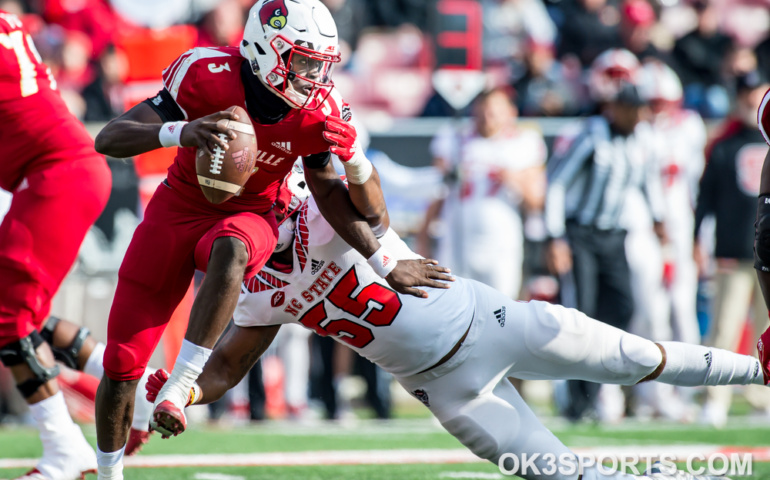Screaming fans. ESPN interviews. Free food. Elite training facilities.
This is what tends to come to mind when people think about the life of Division I football players. Lots of glamour and great benefits. However, that’s only a small chunk of what it’s like to be a DI football player. In fact, their day-to-day is a lot more about hard work, and a lot less about press conferences.
To get a better understanding of how exactly DI football players spend their time, we talked to NCSA head recruiting coach Zak Willis. Coach Willis has an impressive background as a grad assistant and tight end coach for University of South Carolina’s football team, assistant offensive line coach and recruiting intern at Michigan State, and special teams coordinator and recruiting teams coordinator at Miami of Ohio, not to mention his head coaching experience at various smaller colleges.
Coach Willis broke down a typical day for an in-season Division I football player, represented in the image below.
DI athletes have to put in the time—a lot of time
Let’s face it: This schedule is pretty intimidating! Coach Willis explains, “The competitive level in DI sports is so high, you have to work out all the time. The biggest shock is the amount of time players have to put in.” The three main ways DI football players spend their time outside of classes and homework:
- Strength and conditioning: Athletes are expected to fit their strength and conditioning in around their class schedule. Coach Willis says that sessions are around 90 minutes to two hours, and athletes typically opt to do this first thing in the morning before classes start.
- Practice: Practice takes about two hours, not including break times or pre-practice taping. Athletes usually get to the facilities about 30-45 minutes before practice time starts to make sure they’re ready to go.
- Training: This time is typically set aside for getting taped and working with physical trainers. Especially for athletes who see a lot of playing time, training sessions are crucial for staying healthy and tend to take around 45 minutes each day.
While the off season does offer a small break from the rigors of in-season games and practices, athletes are still expected to train, work out and practice with the team. Most DI football players are also on campus for a large chunk—if not all—of their summer break. During this time, they take summer school classes, work out and play 7on7 games to stay in shape.
Don’t be afraid to ask for help
The biggest hurdle to overcome in DI sports: time management. “The number one thing is time management as a freshman; I would hammer that point,” says Coach Willis. He adds that, if a DI football player is going to drop out of his sport, it usually happens his freshman year. Why? Because he ran into time management problems.
While the schedule of a DI football player is tough, athletes don’t have to tackle it alone (pun intended!). Coach Willis says that various staff members can help athletes figure out how to manage their time and accomplish everything they need to get done. “You still have an academic advisor at that level, and he or she will know the best route for you. Strength coaches also go through every student-athlete’s schedule and create the times when they should do strength and conditioning. Manage your time very wisely and give yourself time to eat and time to study.”
To make it in DI sports, you have to love the game
Coach Willis advises that aspiring DI athletes know one key piece of information before they commit to competing at this level: Understand that it’s a lot of work and most of it will be away from the spotlights and stadiums. “You have to go in with the attitude that your sport is paying for your education and it’s a job—at the end of the day, it’s even more than a full-time job!” Coach Willis explains. “You can’t just love the idea of playing, because you aren’t going to make it on that alone.”
Original article found here.


